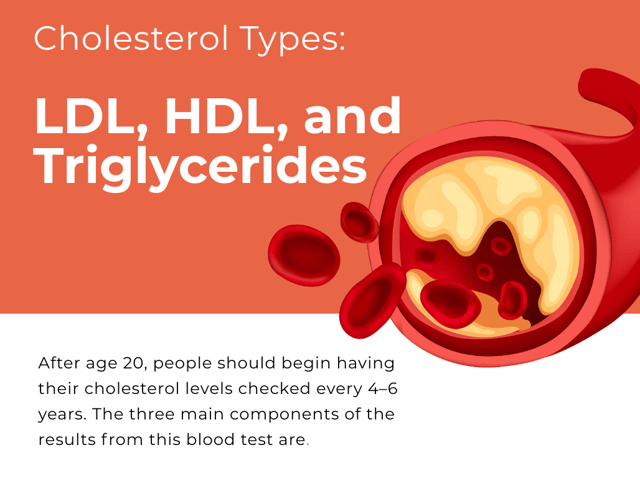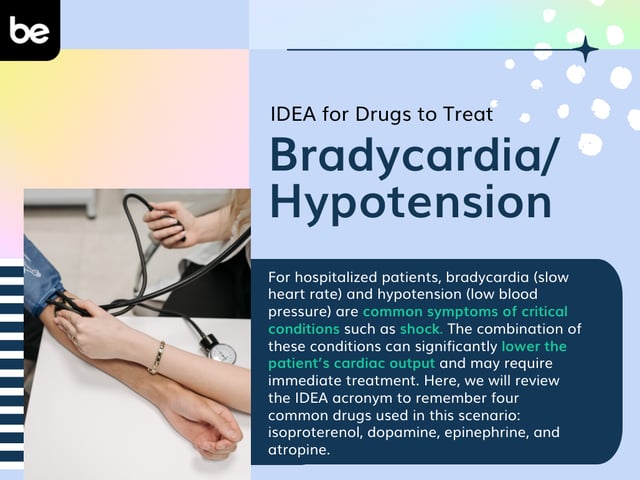
Cholesterol Types: LDL, HDL, and Triglycerides
After age 20, people should begin having their cholesterol levels checked every 4–6 years. The three main components of the results from this blood test are low-density lipoproteins (LDL), high-density lipoproteins (HDL), and triglycerides. Cholesterol itself is a type of lipid that plays an important role in the cell membrane structure, and cholesterol is transported by lipoproteins. Cholesterol is synthesized by the body and ingested, but when cholesterol levels are too high, the risk of heart disease increases.
LDL Cholesterol
Low-density lipoprotein (LDL) cholesterol is often referred to as the “bad” cholesterol. Higher levels of LDL cholesterol is associated with narrowing of blood vessels due to build-up of plaque (atherosclerosis). When LDL levels are raised, diet changes and exercise may help lower this value over time. If not, a statin may be required.
HDL Cholesterol
High-density lipoprotein (HDL) cholesterol, on the other hand, is considered “good” cholesterol, as it is believed to carry LDL cholesterol out of arteries and to the liver to be broken down. Higher levels of HDL cholesterol are optimal. Diet and exercise changes are most effective to increase HDL cholesterol, and some statins have the ability to raise it slightly.
Triglycerides
Triglycerides are a specific type of lipid or fat found in the body. The body stores unused calories from food in the form of triglycerides. A diet higher in calories and fat cause an increase in triglyceride levels, which contributes to atherosclerosis. High levels of triglycerides can be dangerous, especially in conjunction with high levels of LDL cholesterol. However, diet modifications and exercise are effective in decreasing triglyceride levels.
So, when someone says he or she has “high cholesterol,” it is the level of LDL cholesterol that is a concern. But there is more to cholesterol level measurement than the LDL level. Be sure you have all the facts about your cholesterol levels.

Keep Reading

National Council Licensure Examination-Registered Nurse Blog
What to Expect in Nursing School Clinicals
The clinical experience is a rite of passage for all nursing students, …

National Council Licensure Examination-Registered Nurse Blog
What is the NCLEX Next Generation (NGN) Exam?
If you’re interested in becoming a registered nurse, you likely know th…

National Council Licensure Examination-Registered Nurse Blog
IDEA for Drugs to Treat Bradycardia/Hypotension
For hospitalized patients, bradycardia (slow heart rate) and hypotensio…